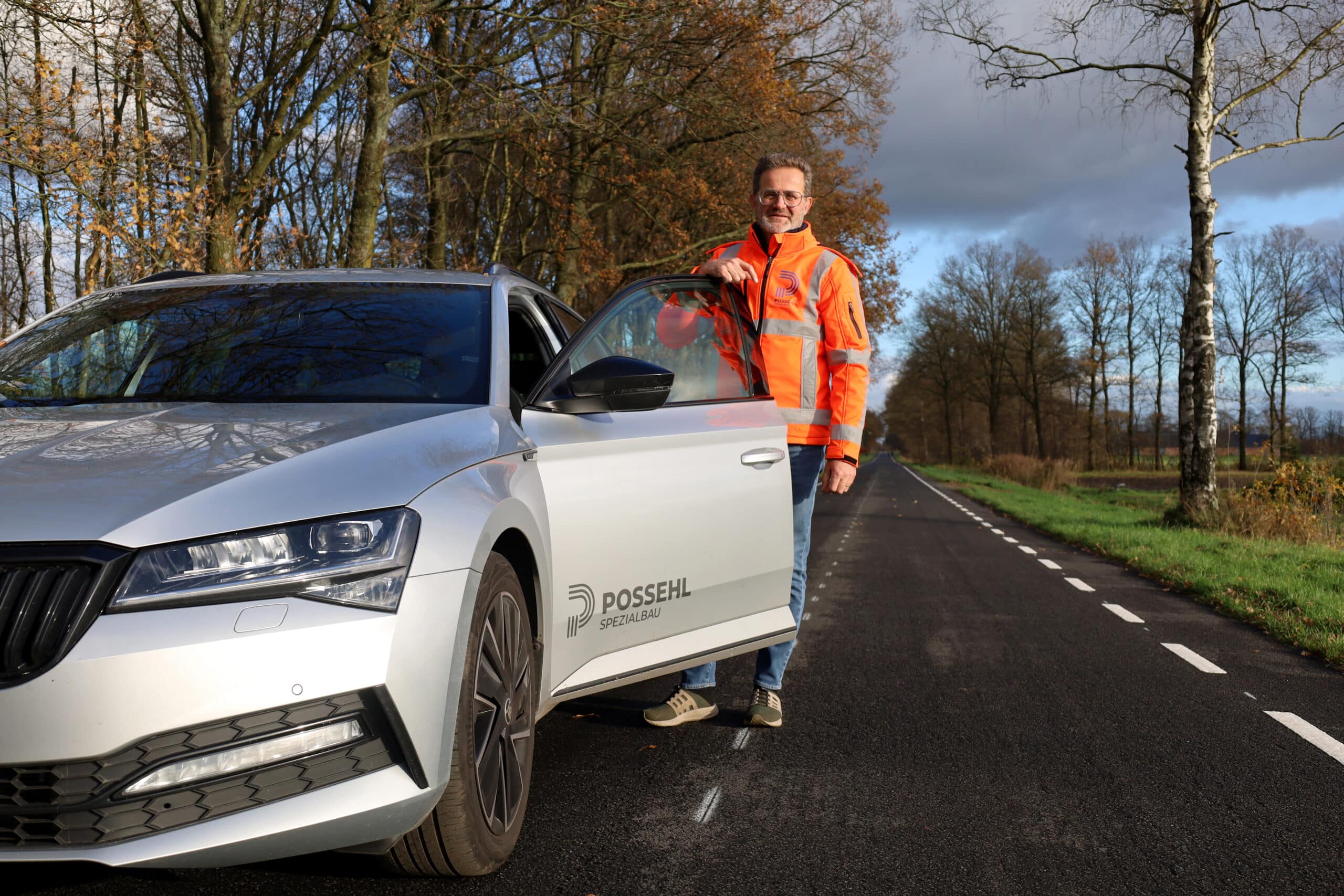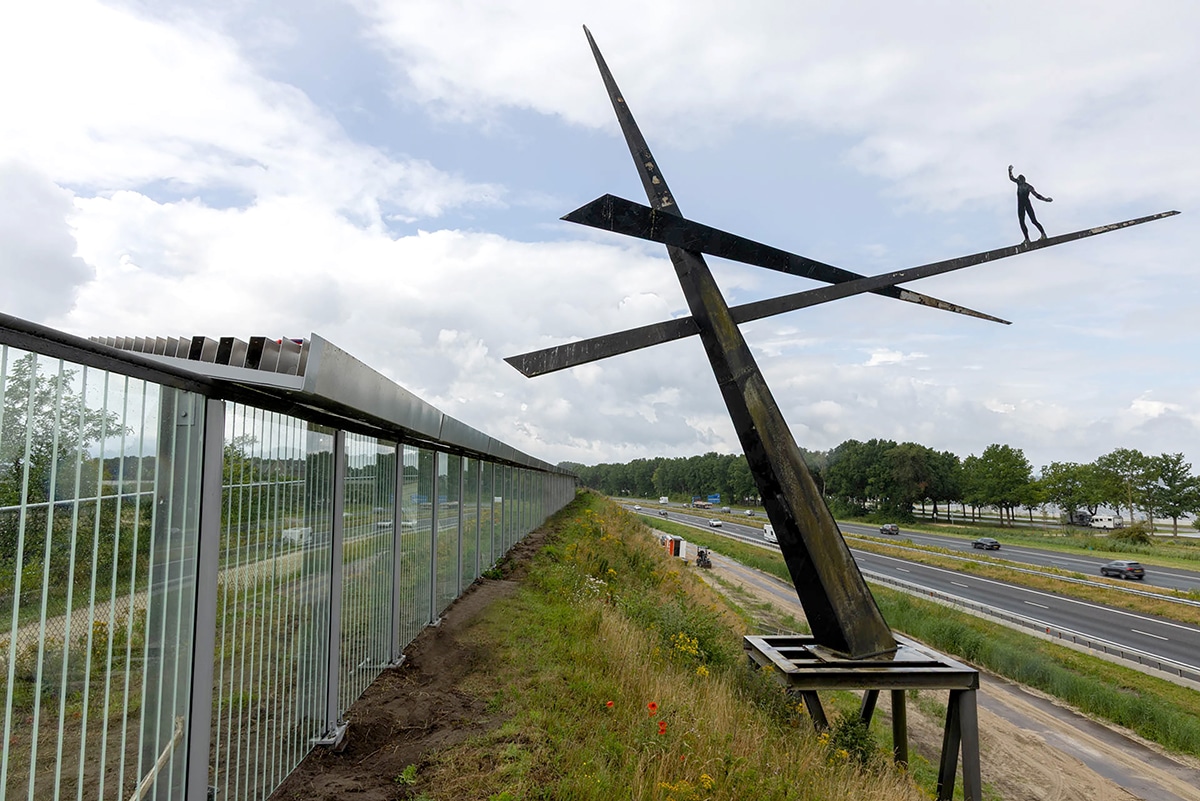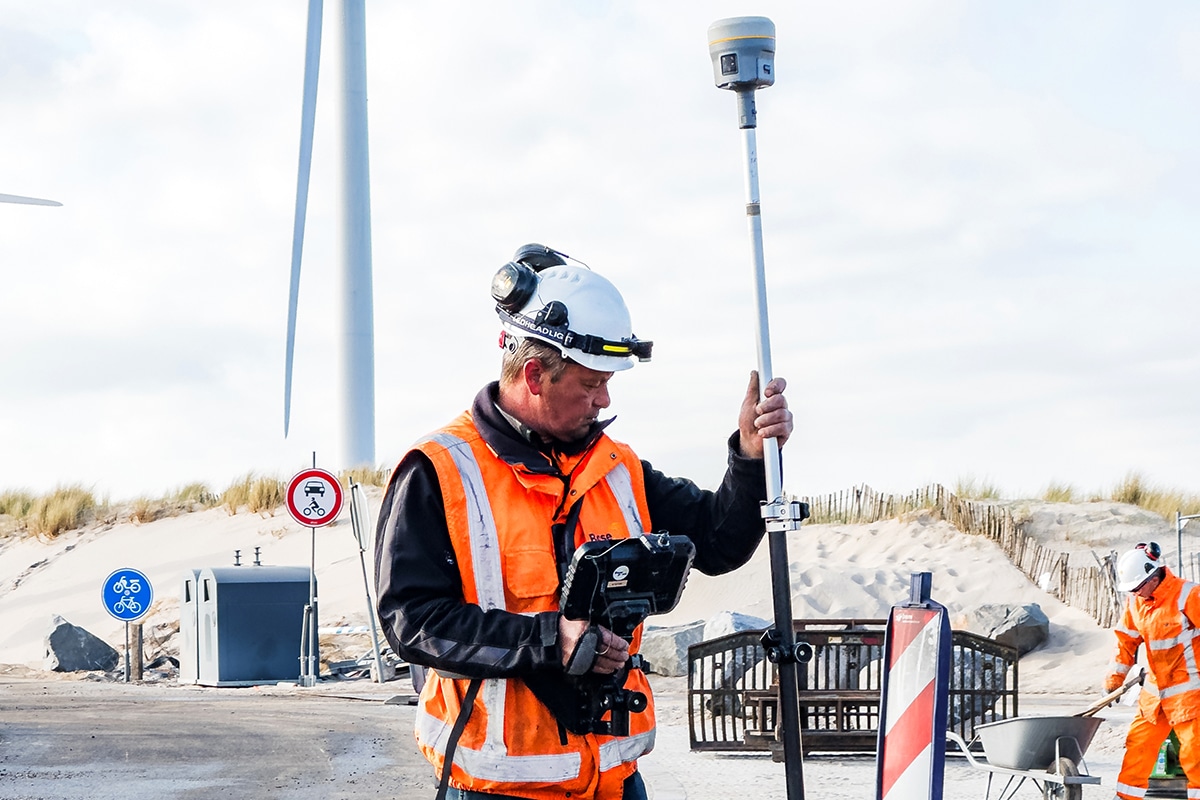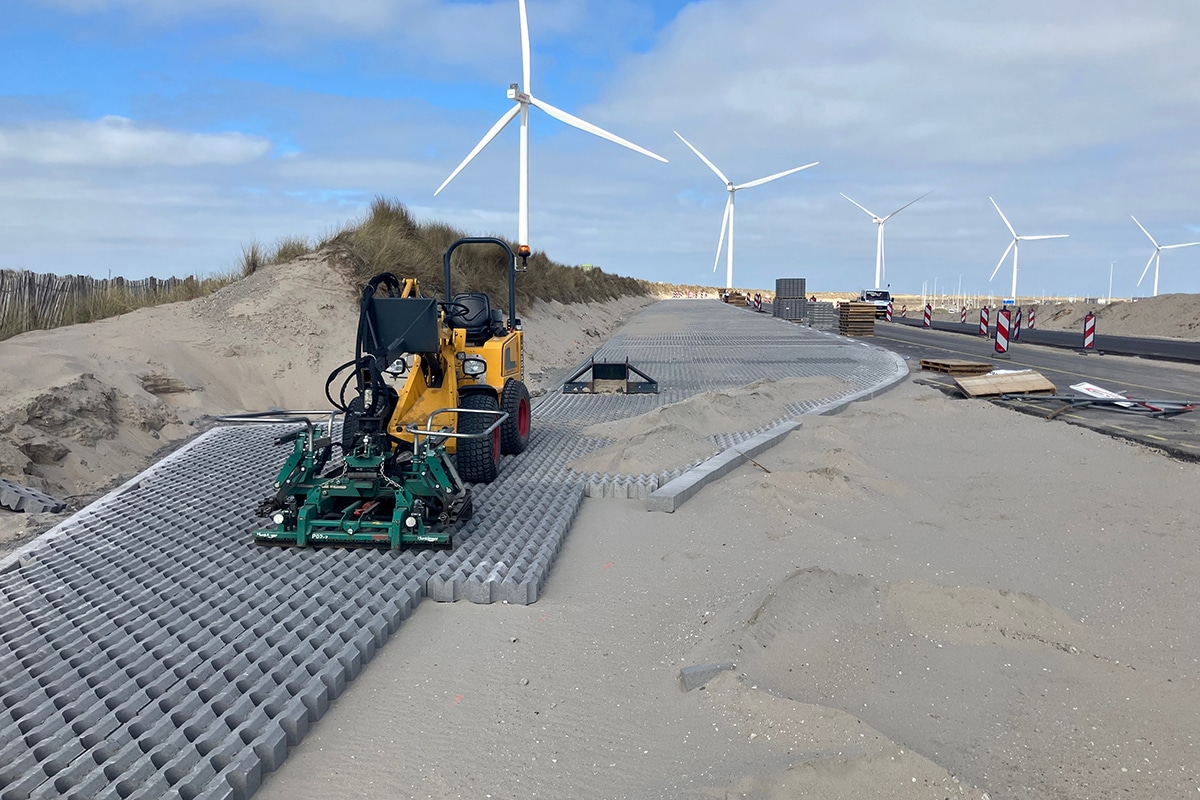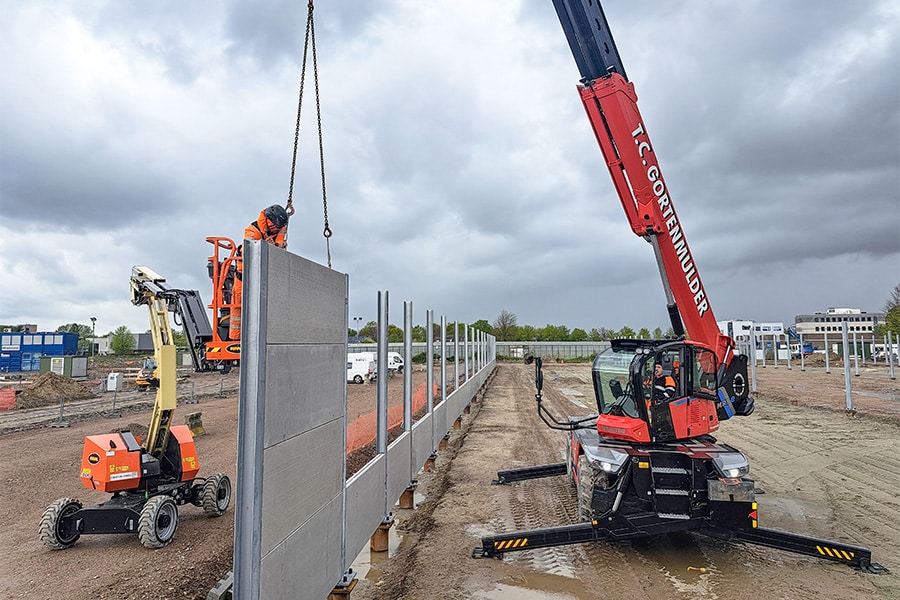
Basalt fiber reinforcement in noise barriers
A new standard for durability and corrosion resistance
In road construction, sustainability is in full swing. Not only on the road, but also off the road. Holland Scherm, for example, is making great strides in terms of sustainability by applying basalt fiber reinforcement in the precast concrete elements for noise barriers. Basalt fiber reinforcement is fundamentally more durable than traditional reinforcing steel, but the really big win is in the fact that concrete elements can be produced thinner. A win-win that led to an honorable mention for groundbreaking construction at the 2024 Concrete Award.
The idea for applying basalt fiber reinforcement dates back to early 2022, says Sander de Boer, director of Holland Scherm, a subsidiary of KWS. "It was suggested during a major internal sustainability session. Basalt fiber reinforcement is a stone of a certain quality that is bonded together with additives to form a rebar. It has almost the same properties as rebar, only the environmental impact is about 30 percent lower than rebar. We pursued that initiative and contacted a supplier. Then in Q3 of 2022 we applied it for the first time along the Innovation Lane on the A58. And with success."
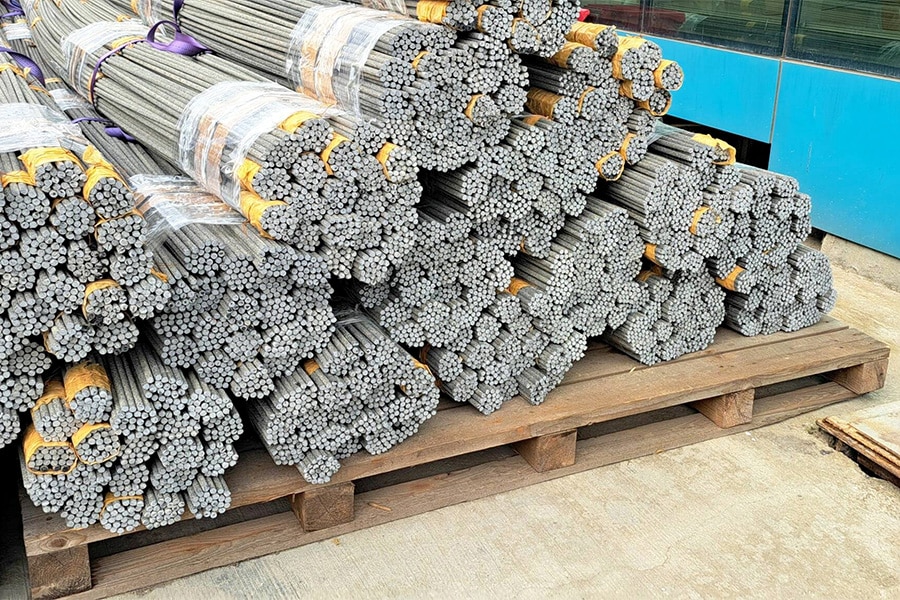
Thinner elements
Basalt fiber reinforcement is thus already a more sustainable choice than rebar in the basics, but the "side effect" actually offers even more potential. "The really big gain is achieved because you can produce precast concrete elements thinner. Crack width is not a measure and does not apply to basalt fiber reinforcing bars. After all, the material is insensitive to corrosion," De Boer explains. "Thus, you can produce about 40 percent thinner elements than with traditional rebar. So the concrete and cement content is also considerably lower, and that's where
the real gain."
Concrete Price 2024
The first major application of basalt fiber reinforcement in practice was at the new Busremise in Breda. "For this, we produced fire walls for the night parking of the electric buses. Inspired by the fire minutes, the elements may have been produced in the traditional thickness, but the project did put basalt fiber reinforcement on the map. Thanks to the honorable mention in the category groundbreaking construction of the Concrete Award," says De Boer. According to the jury, basalt fiber reinforcement represents a technological breakthrough in the construction industry and sets a new standard for durability and corrosion resistance.
Noise barriers along A10
In replacing the noise barriers along the A10 North near Amsterdam, Holland Scherm is taking the next step(s). "The existing screens over a length of about 6 kilometers were damaged by a storm in 2022 and partially removed as a precaution. Since mid-2024, we have been installing the new screens on the existing foundation. By using basalt fiber reinforcement, the new elements are 40 percent thinner. The CO2 reduction on material alone is 250,000 kilograms. An additional advantage is that more panels fit on one truck and we can get by with a compact crane."
Geopolymer concrete
Holland Scherm is going one step further on the A10 North. "We are going to carry out a pilot in cooperation with the Department of Public Works in which we will produce elements with basalt fiber reinforcement in combination with geopolymer concrete," says De Boer. "Basalt fiber reinforcement was already a gigantic innovation, with this pilot we are taking another step forward. We are going to place the elements in three grids in the second half of this year and will, of course, be monitored for a long time. We see basalt fiber reinforcement as the biggest step toward sustainability within our field." And clients see that too. Among other things, Holland Scherm is building a new noise barrier in Harderwijk with basalt fiber reinforcement and is also applying the innovative reinforcement bars in fire walls for a new charging plaza at Schiphol Airport.
